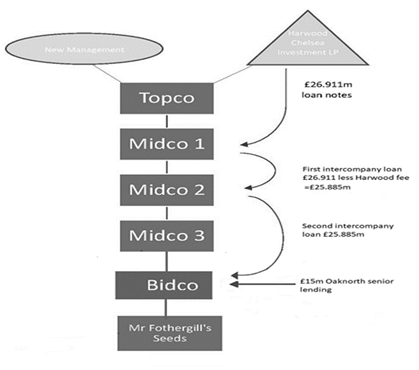Neutral Citation Number: [2023] EWHC 843 (Ch)
Case No: BL-2023-000449
IN THE HIGH COURT OF JUSTICE
BUSINESS AND PROPERTY COURTS OF ENGLAND AND WALES
BUSINESS LIST (ChD)
Royal Courts of Justice, Rolls Building
Fetter Lane, London, EC4A 1NL
Date: 14/04/2023
Before :
MR JUSTICE MILES
- - - - - - - - - - - - - - - - - - - - -
Between :
|
|
CHELSEA MIDCO 1 LIMITED |
Claimant |
|
|
- and -
|
|
|
|
HARWOOD CHELSEA INVESTMENT LP |
Defendant |
- - - - - - - - - - - - - - - - - - - - -
- - - - - - - - - - - - - - - - - - - - -
Adam Deacock (instructed by Keystone Law) for the Claimant
Edmund Cullen KC (instructed by Dentons UK and Middle East LLP) for the Defendant
Hearing dates: 31 March 2023
- - - - - - - - - - - - - - - - - - - - -
JUDGMENT APPROVED


